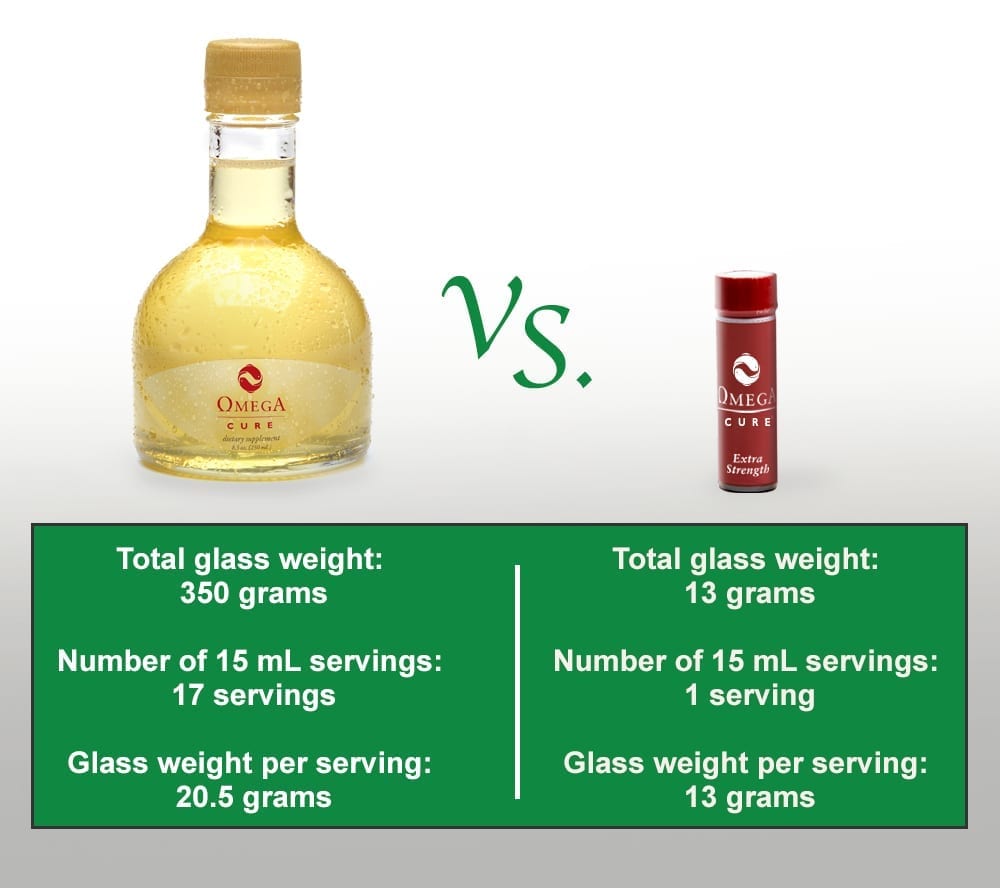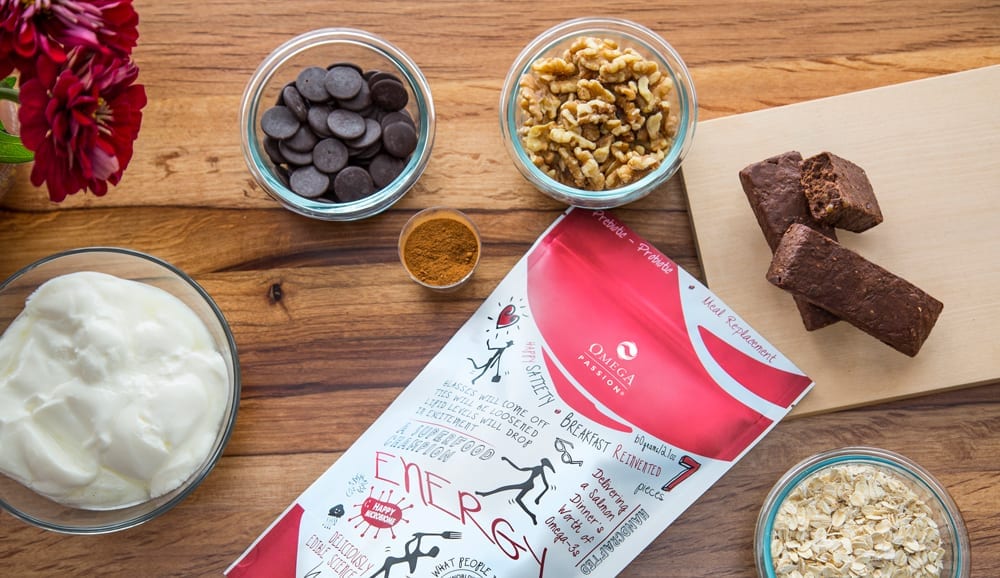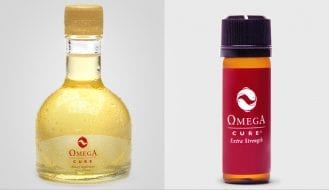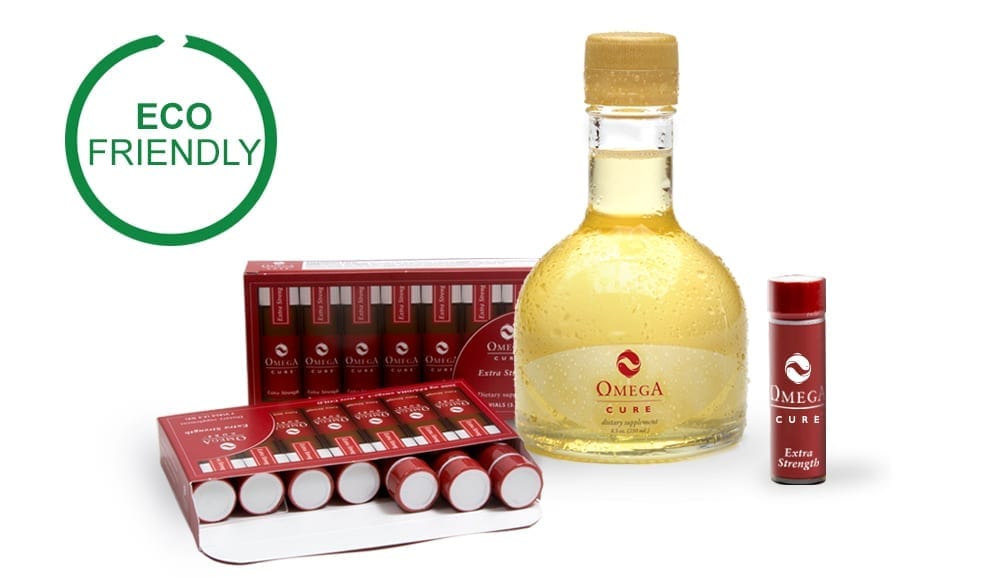Which Is More Eco-Friendly: The Omega Cure Bottle or the Vial?
When we launched Omega Cure Extra Strength last November, a lot of people were excited about finally being able to travel with their fresh, full-spectrum cod liver oil and having the convenience of a pre-measured daily dose.
But some customers told us they felt a little guilty too. “I feel like I’m being wasteful throwing out a glass vial every day,” we heard some people confess. “Even if glass is recyclable, I feel like I’m using more resources.”
For those of you who’ve been wondering about the environmental friendliness of the Omega Cure Extra Strength vials, we’ve got some good news for you:
With the vials, you actually expend less glass than you do with our classic bottle – 36% less glass, as a matter of fact.

How is that possible?
Well, each glass bottle weighs 350 grams and at the 3 teaspoon dose (which is what we recommend for adults with chronic inflammation), holds 17 servings worth of oil. That comes to a 20.5 gram weight per 3 teaspoon dose. On the other hand, each 3-teaspoon glass vial weighs 13 grams. Calculate it out and you’ll see that 17 vials weigh 36% less than the regular bottle.
The weight difference can be explained by the relative thickness of the glass bottle versus the glass vials.
Our classic glass bottles are created using a mold blowing glass technique. While this technique produces some stunning shapes, it also requires thicker glass to prevent the bottle from breaking.
The vials, however, feature a tried and true tubular design. Since the shape has been utilized for many years (thank you, laboratory scientists), manufacturers have already figured out how to minimize the amount of glass needed for the design.
Besides simply using less glass, the slim vials have other environmental benefits too. For instance, because the vials weigh less, they help reduce fuel consumption during transportation.
There are great reasons to choose both Omega Cure or Omega Cure Extra Strength for your daily life (in fact, if you’d like to review the strengths of both products, check out our blog on the topic here). But if you’ve been concerned about the environment, we hope this blog has cleared your conscience about choosing the vials.
Popular posts



Related posts





